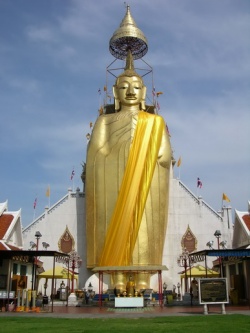The Cause of Suffering: The Kleshas
The Buddha says life is suffering; both the ancient yogis and the Buddhists point to the kleshas as the causes of our suffering. These "afflictions" distort our mind and our perceptions effecting how we think, act and feel. The five main kleshas vary in intensity on our psyche, from being inconsequential in their effect to utter blindness. The kleshas not only create suffering, but are said to bind us to the endless cycle of birth and rebirth, and thus preventing us from achieving enlightenment. Avidya (ignorance) is the misconception of our true reality, believing that the temporary is eternal, the impure is the pure, and pleasure to be painful. This false representation of reality is the root klesha and produces the four others.
Asmita (I-am-ness) is the identification of ourselves with our ego. We create a self-image of ourselves that we believe is us, but it is not us. This self-image can contain both external (I am poor) and internal (I am a bad person) false projections. We become trapped within the projections we have created of our life.
Raga (attachment) is the attraction for things that bring satisfaction to oneself. Our desire for pleasurable experiences creates mindless actions and blind sighted vision. When we cannot obtain what we desire, we suffer. When we do obtain what we desire, our feelings of pleasure soon fade and we begin our search for pleasure again, becoming trapped in a endless cycle.
Dvesha (repulsion) is the opposite of raga, aversion towards things that produce unpleasant experiences. If we cannot avoid the things we dislike, we suffer. Even thinking about unpleasant experiences produces suffering.
Abhinivesha (will to live) is the deepest and most universal klesha, remaining with us until our deaths. We know that one day we will indeed die, yet our fear of death is a deeply buried in our unconsciousness.
The first stage of working with the kleshas is to simply acknowledge them. Reflection promotes self-awareness, self-understanding and self-knowledge to uncover and see the kleshas and their roots as well as how they create suffering.
The direct opposition of concentration and other yogic techniques can counteract simple kleshas. Gross kleshas are overcome with meditation, tapas and seeking wisdom. Yogic techniques are said to burn away the impurities of the kleshas to purify the mind. By ridding ourselves of our kleshas, we are able to clearly see the reality of the world and our own true nature.
